

Traces is a think-and-do, non-profit group on science, its communication and its relationship with society. We constantly challenge self-reassuring assumptions about science in the public sphere – starting from our own – applying systematic criticism typical of scientific methods. As a platform between the academic, associative and private spheres and in collaboration with many, very diverse partners, Traces aims to create spaces in which to reflect, experiment and innovate in the fields of science in society and public communication of science.
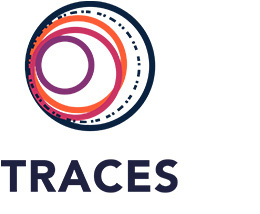
France
www.groupe-traces.fr/
NEMO Science Museum is the largest science center in the Netherlands with more than 665.000 visitors annually. The mission of NEMO is to bring science and technology closer to the public in an interactive and accessible way: in the museum, at schools, at nationwide events and online. NEMO Science Museum is an interactive, informal learning environment in which the general public comes into contact with science and technology. Visitors see, hear and experience how scientific phenomena and technology play an important part in their lives. NEMO works closely with the fields of science and education. Teachers can count on NEMO for educational support. It has a wide range of educational programmes for different levels and ages. These programmes range from worksheets to extensive projects. Through programmes and activities, NEMO offers teachers new information, materials and suggestions, which they can put directly into practice at school. NEMO organises conferences, lectures, refresher courses and workshops. They work in close collaboration with experts in science communication throughout the world. We also collaborate with city and regional authorities, non-governmental organizations, educational and research institutions, community centers, libraries and the public.
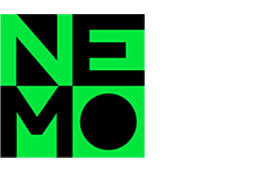
Netherlands
www.n-nemo.nl
SCN is a non-profit association based in Vienna, Austria founded in 2005. Science engagement through hands-on and dialogue activities is at the core of its mission. The organisation initiates and manages innovative projects, using science center activities to excite and empower people from various backgrounds. A strong focus on inclusion has been established during recent years, e.g. with the pop-up mini science centers called “Knowledge°rooms”. The association initiated a nationwide consortium of organisations and persons, who as network-partners strive for the same goal: to contribute to better comprehension of sciences and technology and to societal engagement in important science topics. The network currently consists of more than 160 partners from various fields, among them research organizations, science communicators, museums, teachers and educational institutions. With a small team of ten permanent staff members, the Association implements its projects, coordinates the network, performs public relations, acts as an information hub and provides training opportunities. ScienceCenter-Netzwerk has been involved in several trans-national, European projects and is an active member of ECSITE and EUSEA. It thus also serves as a hub connecting Austrian science communicators and educators with the international community.
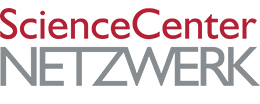
Austria
www.sciencecenter-net.at
MUST was founded in 1953 and is the largest science museum in Italy. In one institution, it has a collection-based museum and an interactive science centre. It has a collection of 15.000 historical objects, the majority of which are displayed in permanent exhibitions organised in five grand themes: Communication, Materials, Energy, Transport, Leonardo da Vinci. In addition, it has 13 educational “Interactive Labs”, spaces inviting visitors to experiment with science and technology directly through experiments, interactive exhibits, and hands-on activities. The i.labs are dedicated to topics such as robotics, biotechnologies, genetics, energy, chemistry, nutrition, etc. In 2009, MUST launched CREI, the Centre for Research in Informal Education, as part of the Education Department which does methodological research aiming to identity and integrate innovative learning methods into the Museum’s work in order to promote STEM learning and visitors’ meaningful experience. Every year the Museum welcomes more than 400.000 visitors.
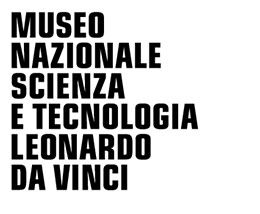
Italy
www.museoscienza.org
RCCM (in Serbian: Seoski kulturni centar Markovac, abbreviated to SKCM) is a non-government organisation founded in 2020 in Markovac, a Village in central Serbia, with a population of approx. 3,000 people. Its main goals/values are: Cultural decentralisation, Gender justice, especially in the field of culture and education, Eco-friendly and sustainable art and cultural activity. Affirmation of non formal education for all generations. The fundamental activity of RCCM is the “Ekatarina Pavlovic” Library, named after the first known literate woman in the Village who lived in the 19th Century. Our library is based on the criterion of gender justice, which means that we tend to have an equal number of male and female authors in our bookshelves, and that we avoid promoting literature that contains and spreads gender stereotypes (which is a difficult goal to achieve, knowing the history of literature). The Markovac Library is located in three different locations: the community office in the centre of the village, in the adapted rooms of an old traditional household and in the waiting room of the local outpatient clinic, and it is free to use.
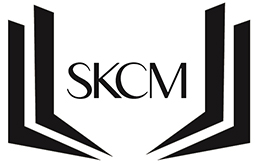
Serbia
www.skcmarkovac.rs
The Center for the Promotion of Science is a public institution established in 2010 by the Serbian Ministry of Science that aims to promote science, technology, and innovation among the general public. The CPN's scope of work includes organising scientific events and exhibitions, developing educational programs and resources, supporting science communication and outreach activities, and fostering international collaboration in the field of science. The CPN's areas of activity cover a broad range of scientific fields, including STEAM, physics, mathematics, biology, astronomy... Our programmes and activities are designed to engage people of all ages and backgrounds, from schoolchildren to adults.
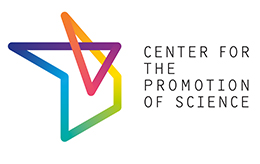
Serbia
www.cpn.edu.rs
The Departmental Library of Seine-et-Marne is a public establishment that provides daily support to more than 210 libraries throughout the department, it contributes, through its expertise, to the networking of territories in public reading facilities that offer a quality service and a regional influence (help and advice for the creation and operation of libraries). It accompanies, supports and trains librarians and book professionals within the Department. It carries out a policy of cultural development and accompanies the steps of inter-communal cooperation in the field of public reading. It develops partnerships with libraries, cultural facilities, schools, educational institutions and socio-educational structures. It supports the development of digital projects in libraries. It lends collections to territorial libraries. It is a resource and information centre for libraries and other organisations contributing to the development of reading, access to information, training and culture.
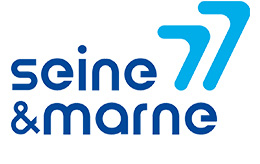
France
www.seineet-marne.fr
Fondazione per Leggere is a library system that coordinates activities and services in the library sector for the public libraries of the member municipalities. Fondazione per Leggere’s activities range from the coordination of interlibrary loans and the purchase of books to user services, to the creation and proposition of training courses in the librarianship and non-library fields for librarians within the system. In recent years, Fondazione per Leggere has developed an exhibition dedicated to the theme of Augmentative Alternative Communication (AAC), providing training to library operators regarding its use has built dedicated sections (called Biblioteca oltre ogni limite - Library beyond all limits) within the collections of the libraries concerned.
The Amsterdam Public Library Foundation is a cultural institution that aims to promote the free movement of information across Amsterdam society. The OBA is listed as a cultural public benefit institution (ANBI). The OBA Inspires all Amsterdammers to keep learning; Facilitates lifelong learning through suitable offerings for every age group; Makes it possible to learn new skills in the 21st century; Places a special focus on people who have difficulties with language and digital skills; Makes knowledge, culture and information available and accessible to everyone; Aims to provide free access to all conceivable information and technology sources; Is available seven days a week due to the extended opening hours of our branches; Offers optimal service to visitors on both physical and digital platforms; Stimulates reflection, meeting and involvement in the City and neighbourhood; As a meeting place for the diversity of languages and cultures within the city; Pays attention to social themes, such as health, self-reliance and sustainability works closely with groups and organisations within the City and its neighbourhoods.
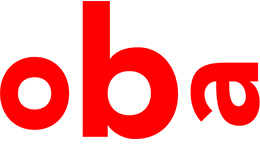
Netherlands
www.oba.nl
The libraries of the City of Vienna are a resource for all seeking free access to knowledge, information, and entertainment. With their network of 38 branches, the libraries offer 1.4 million books, newspapers, films, and CDs, as well as extensive digital offerings such as ebooks, audiobooks, games, and more. The libraries are open houses. Anyone can come and go as they please – simply to read, watch films, work, or meet people. As a central cultural and educational institution of the City of Vienna, they are accessible to everyone regardless of age, gender, origin, educational background, or economic means. The libraries see themselves as meeting places. Nearly 10,000 events take place annually. Offerings include tours, early literacy promotion, readings, discussions, theatre and film screenings, as well as language instruction, tutoring, computer know-how, and even chess rounds. The libraries see themselves as centres in the city that their visitors can shape themselves – simply and barrier-free. A special concern is to introduce children and young people to the libraries. In addition to an extensive ongoing children's and youth program, the libraries annually host the largest Austrian children's arts, culture, etc. festival, the "Lesofantenfest." The libraries continuously tweet, post on Facebook, and share on Instagram about their entertaining everyday life and their offerings.

Austria
buechereien.wien.gv.at